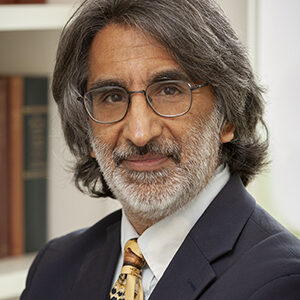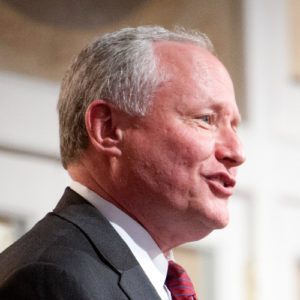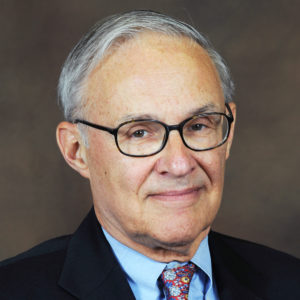The Federalist & Contemporary Debates
Consider The Federalist Papers anew through the lens of current events.
Summer 2021
Washington, DC
Our next course of study in Political Studies focuses on America. During the morning session, fellows will engage key texts that have helped shape the political idea – and political ideals – of America. Led by Professor Darren Staloff, fellows will reflect on the ideas of modern liberal democracy, exploring how the American system has sought to balance the deepest themes of ancient political thought against the imperatives of individual freedom, security, and economic progress that are so central to modern liberal thought. They will examine the relation of nature, reason, rights, and citizenship in forming the core of the American political ethos and search for the philosophical roots of the differences between conservatism and liberalism in the contemporary world.
Image: Detail from John Trumbull, Declaration of Independence, 1819
Darren Staloff on Pursuits of Fun and Freedom

Darren Staloff is a retired Professor of History from the City College of New York and the Graduate Center of CUNY. Professor Staloff has published numerous papers and reviews on the subject of early American history.

Darren Staloff is a retired Professor of History from the City College of New York and the Graduate Center of CUNY.
Professor Staloff has published numerous papers and reviews on the subject of early American history and is the author of The Making of an American Thinking Class: Intellectuals and Intelligentsia in Puritan Massachusetts (1998) and Hamilton, Adams, Jefferson: The Politics of Enlightenment and the American Founding (2005).
He has recorded dozens of audio and video tapes (nationally distributed) on U.S. and world history and major philosophers. He has received many fellowships, including The James Madison Program in American Ideals and Institutions at Princeton University as well as an NEH grant and a post-doctoral fellowship from the Omahundro Institute of Early American History and Culture. He earned his B.A. from Columbia College and his M.A., M.Phil., and Ph.D. from Columbia University.
Readings:
Discussion Questions:
Theoretical Underpinnings of the American Republic
Discussion Questions:
Readings:
Discussion Questions:
Readings:
Discussion Questions:
Readings:
Discussion Questions:
Readings:
Discussion Questions:

Greg Weiner
Greg Weiner is President of Assumption University and founding director of the Daniel Patrick Moynihan Center for Scholarship and Statesmanship. He is the author of American Burke: The Uncommon Liberalism of Daniel Patrick Moynihan and Old Whigs: Burke, Lincoln and the Politics of Prudence.

Akhil Reed Amar
Akhil Reed Amar is Sterling Professor of Law and Political Science at Yale University, where he teaches constitutional law in both Yale College and Yale Law School. He is Yale’s only currently active professor to have won the University’s unofficial triple crown — the Sterling Chair for scholarship, the DeVane Medal for teaching, and the Lamar Award for alumni service. He hosts a weekly podcast, Amarica’s Constitution.

Adam J. White
Adam J. White is the Laurence H. Silberman Chair in Constitutional Governance and senior fellow at the American Enterprise Institute, where he focuses on the Supreme Court and the administrative state. Concurrently, he codirects the Antonin Scalia Law School’s C. Boyden Gray Center for the Study of the Administrative State.

Daniel DiSalvo
Daniel DiSalvo is a Senior Fellow at the Manhattan Institute’s Center for State and Local Leadership and an Assistant Professor of Political Science at The City College of New York-CUNY. His scholarship focuses on American political parties, elections, labor unions, state government, and public policy.

William Kristol
William Kristol is editor at large of The Weekly Standard, which, together with Fred Barnes and John Podhoretz, he founded in 1995. Mr. Kristol has served as chief of staff to the Vice President of the United States and to the Secretary of Education. Before coming to Washington in 1985, Kristol taught politics at the University of Pennsylvania and Harvard’s Kennedy School of Government.

Amy A. Kass
Amy Apfel Kass (1940 – 2015) was a senior fellow at the Hudson Institute, Senior Lecturer Emerita in the humanities at the University of Chicago, and coeditor of What So Proudly We Hail: The American Soul in Story, Speech, and Song. She was an award-winning teacher of classic texts.

Leon R. Kass
Leon R. Kass, M.D., is the Madden-Jewett Scholar at the American Enterprise Institute and Harding Professor Emeritus in the Committee on Social Thought at the University of Chicago. From 2001 to 2005, he was chairman of the President’s Council on Bioethics.